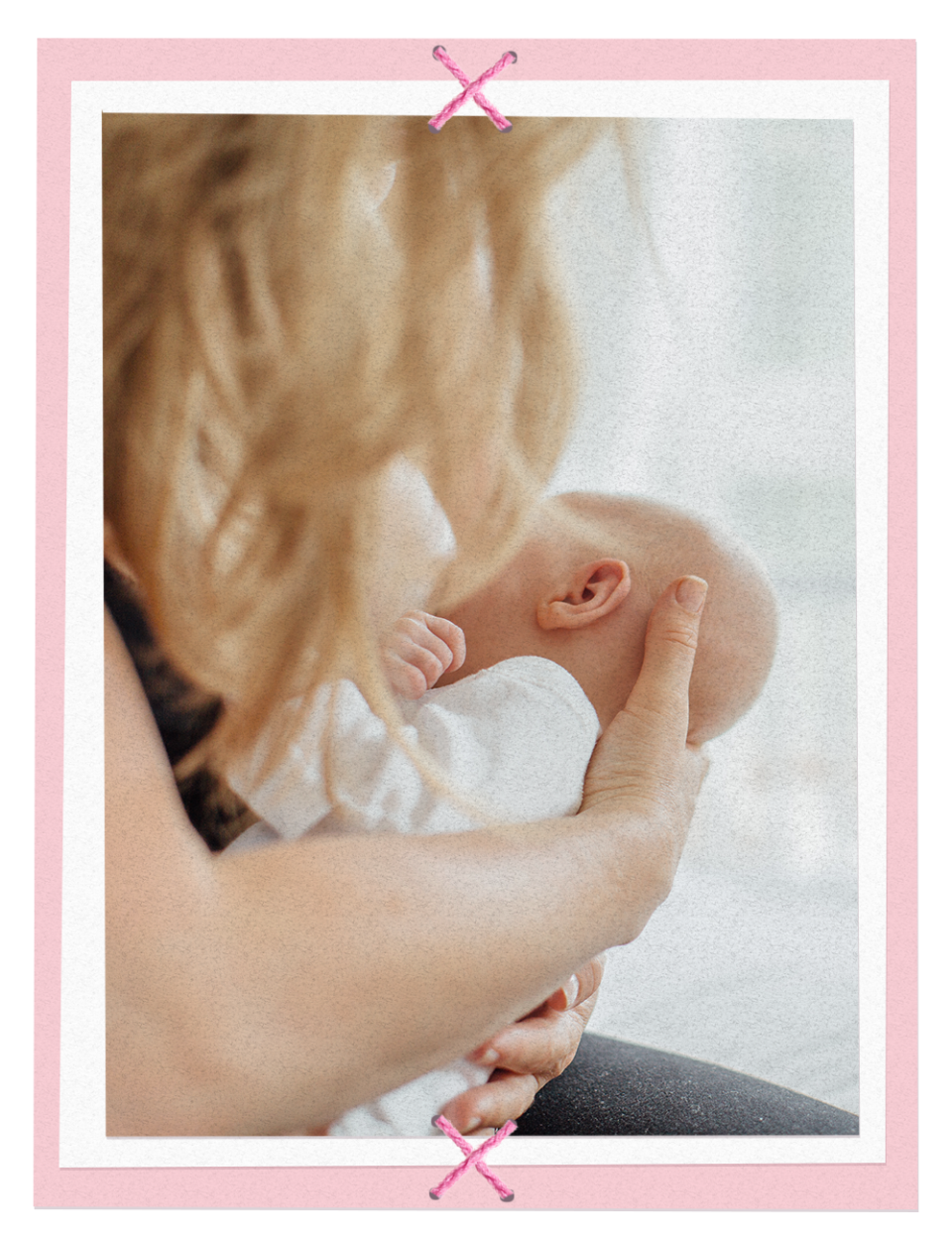Don't Clean the House — and More Smart Advice OB/Gyns Have for Postpartum Recovery

The truth is, no one can tell you exactly how birth and postpartum recovery are going to go for you: Every birth is different, and every person has their own journey on the path from pregnancy to labor and delivery to postpartum recovery. But you can try and be as prepared as possible, so at least you know in general terms what might be coming you way.
But while there's so much information about pregnancy (how many week-by-week pregnancy guides did you read?), and even tons of advice about how to get through labor, we fall short when it comes to information about postpartum care. Maybe it's because every parent who goes through it is in a new-baby fog, and maybe it's because it can be difficult and not-fun to talk about, but these postpartum conversations tend to happen on a smaller scale in whispers with only our closest, most trusted advisors.
But we do a disservice to ourselves when we skip these postpartum conversations. So, we asked people who have seen it all — OB/Gyns, doctors, and post-birth specialists — to give us their best advice for the smoothest possible post-birth experience, since forewarned is forearmed. (Don't forget to sleep!)

These postpartum care tips will get your recovery started off on the right foot.
Those first few days home from the hospital are often a blur, so have these tips in mind so you're in a better position to weather the storm.
Get as much sleep as you can. "The thing your body needs most after you give birth is rest — both physical and mental. To maximize your recovery, let others around you cook and clean for you, and also let others care for your baby throughout the day so you can get as much sleep as possible. Especially if you’re breastfeeding and are the 'feeder-in-chief,' designate someone else to be the 'soother in chief' — responsible for diaper changes, swaddling, and cleaning your baby — so you can get a little more shut-eye," says Whitney Casares, M.D., M.P.H., F.A.A.P., and author of The New Baby Blueprint.
Seriously, sleep. "Get some rest. Please nap — your friends and relatives don't need to be entertained. And if your house is a mess, great! Don't worry — it's going to be messy for at least the next 18 years! Don't clean, rest!" says Mary Jane Minkin, M.D., clinical professor of OB/Gyn at Yale University School of Medicine.
Keep yourself fueled up. "Eat healthy foods; have smaller, more frequent meals; cut down on sugar; stay well hydrated. And take vitamins," says Mitchell S. Kramer, M.D., F.A.C.O.G., Chairman of the Department of Obstetrics and Gynecology at Huntington Hospital.
Take care of tears. "Particularly with vaginal births, tearing can take place: 85% to 90% of first-time births result in mild grazes or tears, and rates are lower for subsequent births. This is a completely normal and common birth injury and the length of recovery will differ based on the severity of the tears. The best ways to ensure your body is recovering is to first and foremost be aware of any excessive pain or high fever — this could be a sign of infection — and also use common tools like pain relievers, cold packs, donut-shaped cushions, and peri bottles, to name a few. These simple items can make a huge difference in the way your body feels after giving birth," says Yael Silverberg-Urian C.N.M. for Bodily.
Photo credit: Getty Images Moving helps. "Your body needs rest to heal, but your body also needs to move and exercise postpartum. I recommend starting to go on walks even a day or two after delivery. There's a myth that you can’t do any exercise for six weeks after delivery; I don’t recommend running a marathon, but you can slowly start to increase your activity level while listening to your body," says Kelli Krase, M.D., of the University of Kansas Health System.
Do your exercises. "Keep up with your kegels. It will pay off in the long run!" says Navya Mysore, M.D., of One Medical.
Prepare down there. "Although you're not thinking about this early on, you will want to have sex again, and particularly if you're breastfeeding you are very possibly going to have vaginal dryness. So stock up beforehand on some lubricants and moisturizers. A very popular moisturizer brand is Replens — it's available over the counter at pharmacies, and it's non-hormonal. You can insert it two to three times a week, and it will help significantly with moisture," says Dr. Minkin.
Listen to your body. "If it feels good, go forth! If not, then don't do it! Postpartum 'rules' for when to exercise, when to lift certain amounts of weight, when to take a bath, and so on are often arbitrary. Listen to your body and use common sense. Getting outside, walking, returning to your previous activities are all examples of good things that are not magically 'safe' on a certain postpartum date put on your discharge papers. If it feels good emotionally and physically, then do it!" says Christine Issacs, M.D., Division Head, General Obstetrics and Gynecology, VCU Health
Check in with your doctor. "The American College of Obstetrics and Gynecology recommends that postpartum care ideally includes an initial assessment, either in person or by phone, within the first three weeks postpartum to address acute postpartum issues. This initial assessment should be followed up with ongoing care as needed, concluding with a comprehensive well-woman visit no later than 12 weeks after birth," says Angela Martin, M.D., assistant professor of maternal-fetal medicine, University of Kansas Medical Center.
Go earlier if you need it. "If you're worried about anything sooner, seek care. Your body goes through a major transition when you give birth and taking care of that new body can feel daunting — but it doesn't have to be," says Dr. Casares.
We're not kidding about the sleep. "When given the choice of things to do, always opt for sleep," says Genevieve Sicuaranza, M.D., Chief of Obstetrics and Patient Safety Officer at NYU Winthrop Hospital.

Things can be harder if you're recovering from a c-section.
If you have a c-section, you'll have more restrictions on what you can do after birth, and you'll have to take care of the incision and scars. C-section recovery is harder, but this advice can help.
Give yourself extra leeway. "C-sections are so common that we often forget that they are total abdominal surgery. Healing should be thought of in that vein," says Silverberg-Urian.
Manage the pain. "Don't be afraid to take pain medication — it's safe to take even if you're breastfeeding, and you just had major abdominal surgery! Motrin and Tylenol are great to stagger, and try to stay on top of your pain regimen the first few days," says Jennifer Butt, M.D., F.A.C.O.G., of Upper East Side Obstetrics & Gynecology.
Be upfront about bathroom issues. "Let your obstetrician know if you experience prolonged constipation. Some of the pain medications used during the c-section recovery period can exacerbate this," says Dr. Casares.
Don't plan anything physical. "You’ll be instructed to not lift anything heavier than your baby for about six to eight weeks, generally. Additionally, driving is not considered safe until about four weeks after the surgery, as the twisting and moving to see blind spots can be harder with having the incision and surgery," says Silverberg-Urian.
Stay clean. "Showering is ok with an abdominal incision! Don’t scrub or rub over the incision. Gently pat the incision dry. Your incision might itch as it heals — this is normal," says Dr. Martin.
Take care of the scar. "Scar massage can help heal your c-section scar with good mobility. I would only start it once you get the okay from your OB, and I recommend seeing a women's health physical therapist who can help teach you how to massage your scar appropriately," says Dr. Mysore.
Understand what's not worth panicking about. "Lower extremity swelling can be very normal. All the added fluid that helped support your pregnancy takes a little time to be filtered by your kidneys and excreted," says Dr. Sicuaranza.
But know when to call the doctor. "If you start experiencing worsening discomfort, or more bleeding, or a temperature over 100 degrees, check in with your healthcare provider," says Dr. Minkin.
More red flags: "If you saturate a sanitary pad with blood within an hour, or have a temperature greater than 100.4 degrees, worsening uterine pain, burning on urination, shortness of breath, chest pain, leg pain, sudden swelling, headache, or visual disturbances, these symptoms can be an indication of a postpartum complication that requires medical attention," says Dr. Sicuaranza.

Breastfeeding might be tricky at first.
It seems like it's the most natural thing in the world, but breastfeeding is often hard the get a hang of in the beginning. If you choose to breastfeed, here's how to not beat yourself up about the steep learning curve.
Ask for help. "Be the (nice) squeaky wheel at the hospital when it comes to requesting lactation services. Ask for help with breastfeeding early and often from your bedside nurse, and request a consultation from a certified lactation specialist right away if you experience nipple pain or if your baby is having any feeding difficulties. Breastfeeding is like riding a bike — once you're a pro, it feels natural, but in the beginning, it's often challenging and awkward as you try to learn. Lactation consultants can help raise your confidence and work with you to address latch and milk production issues," says Dr. Casares.
Give yourself a long learning runway. "Don't give up! Breastfeeding could be difficult for some of our moms, especially first-time moms. I advise my patients to increase water intake and to continue taking their prenatal vitamins. There are also some tricks that we can use, like using a nipple shield for inverted nipples or for pain. Breast massage, hand expression and pumping can help as well. Lanolin cream is also great. Nobody tells you breastfeeding could be difficult but it really can be!" says Debora Sedaghat, D.O., Obstetrics & Gynecology, Fountain Valley Regional Hospital and Medical Center.
Photo credit: Getty Images Realize it may be uncomfortable. "Pain during breastfeeding is common and doesn't mean you're doing it wrong. Most mothers experience nipple discomfort with breastfeeding initiation. This nipple sensitivity is usually limited to the first few suckles of the feed. This 'latch-on' pain shouldn't persist throughout the whole feeding and should resolve completely after the first several weeks. Some mothers have a 'pins and needles' sensation of let-down that they find uncomfortable too, but this discomfort also usually improves in the first weeks of breastfeeding," says Dr. Martin.
Drink, drink, drink. "It was surprising to me how hungry and thirsty I was with breastfeeding, so I recommend trying to drink a glass of water every time you nurse," says Dr. Krase.
Be realistic about what breast-feeding can do. "Breastfeeding does not give you contraception, and babies can be born nine months apart. So you do want to have a good method of contraception on board — speak with your healthcare provider before labor and birth," says Dr. Minkin.

Take care of your mental health too.
Sleep deprivation and out-of-control hormones are a perfect storm for some wild feelings, which are normal, but it's important to know when those tip over into more serious conditions like postpartum depression or postpartum anxiety.
Make room for emotions. "Postpartum 'baby blues' are a normative and expectable outcome of childbirth, affecting approximately 80% of women. The baby blues typically last up to two weeks and might include mood swings, feeling overwhelmed, anxiety, bouts of crying, or difficulty sleeping. However, if these feelings persist or worsen beyond the two-week mark, talk to your healthcare provider. It's important to note that medical conditions such as postpartum depression do not go away on their own," says Jessica Zucker, Ph.D., a psychologist specializing in women's reproductive and maternal mental health.
Take pressure off yourself. "Give yourself space to feel whatever emotions you have, including grief or sadness. We go into birth with a lot of expectations, including some we don’t even realize we have. Having surgery and recovery from surgery require healing physically, but also emotionally and psychologically — especially if a c-section was unexpected or under conditions in which you felt you or the baby might be in danger. Be proud of what you have accomplished," says Mary Kimmel, M.D. assistant professor of psychiatry at University of North Carolina School of Medicine, co-director of the Perinatal Psychiatry Program, and medical director of North Carolina Maternal Mental Health MATTERS.
Don't stack yourself up against your friends. "Everyone's story — pregnancy, labor, delivery, postpartum — is different, so try to avoid comparing yourself to others. And for everyone else, be kind, be supportive, and lift one another up," says Dr. Butt.
Stay in touch with who you were pre-baby. "Build in time to connect with activities or things that are important to you. Share important things with your infant, and tell your infant about activities you enjoy. Talking to your child about these things, and showing your child items that mean something to you, will help your child’s development and will remind you of things that are important to you and that you enjoy," says Dr. Kimmel.
Recruit backup. "Ask friends and family to sign up to help with basic needs for your family. Set up a chart with supermarket shopping, dinners, laundry, childcare help, and so on. This will help during the period of deep blues, which is not uncommon," says Silverberg-Urian.

Stock up on these supplies before you head to the hospital.
Do yourself a favor: Buy yourself these supplies as early in your pregnancy as you can, and just sock them away for later. You'll need them after birth, and the last thing you'll want to do when dealing with a newborn is make a pharmacy run. Our doctors recommended putting these items into a postpartum kit (you should check with your doctor before picking some up for yourself):
Acetaminophen (like Tylenol)
Ibuprofen (like Motrin)
silicone scar sheets for c-sections

The most important thing is to give yourself a break.
Having a new baby is hard, and you're probably doing a great job. Repeat this in the mirror: You got this!
Be kind to yourself. "When it comes to how you feel about your body upon catching a glimpse of yourself in the mirror, be gentle. If your inclination is to hurl a harsh comment at your unfamiliar reflection, resist. Breathe. Remember: you just navigated pregnancy and gave birth to a baby. This is a lot for the body to go through. Be sure to give it time to heal and adjust to no longer being pregnant," says Dr. Zucker.
Give yourself time. "Postpartum is a time for a few very large shifts: learning to refocus our approaches to communicating — huge areas where we become a novice again— new roles as mother and spouse, rearranging who is part of our inner circle and who constitutes our outer circle. Women have unrealistic expectations of how long it takes to learn these critical new aspects of our lives. This, of course, is hindered by society’s lack of understanding and lack of commitment to support women through this process. The pressure to move quickly through these stages places additional burdens on women which in turn feeds our general feelings of inadequacy during the postpartum period. These pressures are often the reason new mom's skip proper postpartum self care. In postpartum, women need to give ourselves time to adjust, we need to be patient with our healing, and try to get plenty of rest. Also, asking for help whenever needed is very important in maintaining our mental and physical health," says Silverberg-Urian.
And always remember: "Give yourself time to heal and recover. Remember, it took approximately 40 weeks to grow a human being — or two!" says Dr. Butt.
For can't-miss news, expert beauty advice, genius home solutions, delicious recipes, and lots more, sign up for the Good Housekeeping newsletter.
You Might Also Like



